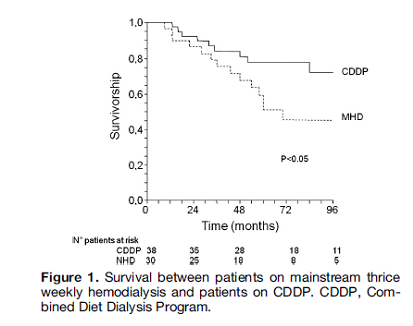Day 1 :
Keynote Forum
Francois Andre Allaert
Francois Andre Allaert, Cen Nutriment Dijon, France
Keynote: Grading nutritional health claims by weight of evidence would make for a better-informed public
Time : 09:35-10:15

Biography:
Francois Andre Allaert is a Medical Doctor specialized in Public Health, completed his PhD in Biostatistics and Pharm D. He is strongly involved in the field of Medical Evaluation and especially in the evaluation of health claim. He is managing a human clinical center specifically approved by French health authorities for food supplement and enriched food evaluation. He is also managing the Chair for Health Claim Medical Evaluation at the Burgundy University of Dijon. He authored more than 1500 scientific oral communications and publications among which 210 are PubMed referred.
Abstract:
In the European Regulation 1924/2006 and especially its first recital; the evaluation of health claims (HC) by European Food Safety Agency (EFSA) was introduced so as “to ensure a high level of consumer protection, [and] give the consumer the necessary information to make choices in full knowledge of the facts…” Now, with 10 years of hindsight since the Regulation was adopted, it can be asked whether EFSA HC process of evaluation that led to a marginal number of accepted claims is consistent with this objective, not just for protecting consumers but for allowing them to decide freely and make informed choices. The aim of this paper is to demonstrate that the inclusion of a ranking of the weight of evidence in the assessment of EFSA’s scientific substantiation of HC would allow consumers to benefit from the very high standard of scientific evaluation performed by EFSA. The definition of standards of proof is a generalized practice and rests on the principle that evaluations of health practices should be understood in terms of descriptions ranging from formal proof from high-power double-blind placebo-controlled studies to rankings based on the consensus views of experts or even agreement among professionals. Grading of weight of evidence – not of scientific expertise – is pervasive in all the recommendations or consensus meetings of health authorities or learned societies. This approach would stimulate research and product innovation as industrials would see a positive return on investment. The transition from an all-or-nothing system of health claims to a system graded by weight of evidence would be an alternative to the current system. This approach would be more consistent with the rationale of European Regulation which aims both to provide consumers with the best possible information by giving them the opportunity to exercise their free will in full knowledge of the facts and to promote research that meets sound scientific and medical grounds providing a basis for such information.
Keynote Forum
Piergiorgio Bolasco
ASL Cagliari, Italy
Keynote: Nutritional hypoproteic approach and phosphate control allows the Incremental Hemodialysis.
Time : 10:15-10:55

Biography:
Piergiorgio Bolasco is Director of the Territorial Nephrology Department- Cagliari Italy from 20 years. His main vein researches are: New and advanced dialytic techniques, prevention of chronic renal diseases by nutritional and pre-dialysis teams and spending review of methodologies and pharmaco economy. Since 1998, he is using and improving combined nutritional and tailored dialysis, guidelines of water for dialysis, peritoneal dialysis. He is the Reviewer of international journals like: Kidney International, Nephron, Nephrology Dialysis and Transplantation, Journal of Nephrology, American Journal of Kidney Disease, Artificial Organs and BMC Nephrology. He is the Member of Editorial Board of Giornale Italiano di Nefrologia, Journal of Nephrology, Minerva Urologica e Nefrologica, Clinical Nephrology and International Journal of Artificial Organs. He is also a Member of Italian Society of Nephrology since 1980. He is author/co-author of 374 scientific publications and abstracts of Nephrology 68 in med-line.
Abstract:
It is largely agreed that preservation of Residual Kidney Function (RKF) has a directly proportional effect on general and in particular cardiovascular mortality. The prolongation of RKF depends on a rigorous hypoproteic regimen especially in phosphate contents because of a significant output urinary phosphate that continues despite of a severe decrease of residual kidney function. The RKF>3 ml/Kg/die 1.73 sm and nutritional compliance allows to choose a new hemodialytic strategy called Infrequent Hemodialysis (ID) as both are once-weekly (CDDP) or twice-weekly hemodialysis. The nutritional regimen and phosphaturia has been frequently underestimated. The excessive proteic charge and hyperphosphataemia load and damage the residual nephrons. We compared general survival, nutritional, clinical parameters, phosphate pool balance between three patient cohorts: 10 in thrice weekly, 10 in twice weekly and 9 in once weekly hemodialysis patients. We collected over 250 urine collections in patients with RKF. The hemodialysis patients on ID who adhere accurately to a low protein diet of 0.6-0.8 g/Kg/day and phosphate intake 800-1000 mg/day were opted for the study. In view of the significant impact produced by inadequate nutrition and poor phosphate control on both RKF and the frequency of even severe cardiovascular effects, infrequent dialysis with its negative or neutral weekly phosphate balance, may constitute a valid “bridging” treatment even in the long-term. Nutritional approach and neutral phosphate control improved wellbeing and the survival rates (fig.1) compared with respect to patients receiving conventional thrice-weekly hemodialysis.

